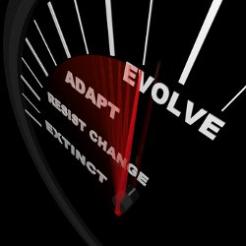A poll by the Democratic Society has revealed that those involved with policy see getting feedback from the relevant people and grasping how the end-user interacts with the outcome are most crucial for improving policymaking.
In the online poll under the banner ‘Open policymaking’, voting for which closed on Friday last week, these two came in joint-first place out of a list of 17 ‘behaviours’, with 97 votes apiece.
The Democratic Society, in association with the Cabinet Office, invited contributions to the poll from “policymakers and anyone involved in delivering policy or influencing its creation”, who were given ten votes to spread across the behaviours which that expressed what they feel policy teams should be doing to improve policymaking.
The full titles of the two top choices were ‘Marketing the engagement exercise so that relevant stakeholders are able to contribute to the process’ and ‘Understanding how the end-user interacts with a policy area in practice’.
'Prototyping proposed solutions and processes' came second, with 65 votes, and joint-third were 'Clearly stating (in plain English) the scope of any related consultation or engagement exercise as well as the desired outcomes' and 'Asking the right questions'.
Anthony Zacharzewski, founder of the Democratic Society, told civilscoiety.co.uk that he was pleased with the most popular choices.
"We're really happy. The focus on making sure that things work by talking to as broad a section of frontline deliverers and experts as possible was exactly within the philosophy of open policymaking," he said.
Zacharzewski added that what pleased him the most was that the issue was being discussed, rather than which came out on top. Voters were also invited to join in a debate in a comments section.
The results of this poll will be fed back to the Cabinet Office’s open policy team, which is in the process of developing a model for open policymaking.
The poll was inspired by the government publishing its document Civil Service Reform Plan in June 2012, which captures developments in how people affected by government policies are becoming increasingly able and motivated to feedback on their experiences of policy, and in turn how the state is able to extract this knowledge.
The full list of behaviours and results, along with more details about each, can be found on the Democratic Society website here.
| Want access to all civilsociety.co.uk content?Subscribers gain access to all expert advice, analysis, surveys, special reports and the full archive of content from as little as £43.20 per year. Find out more... |










